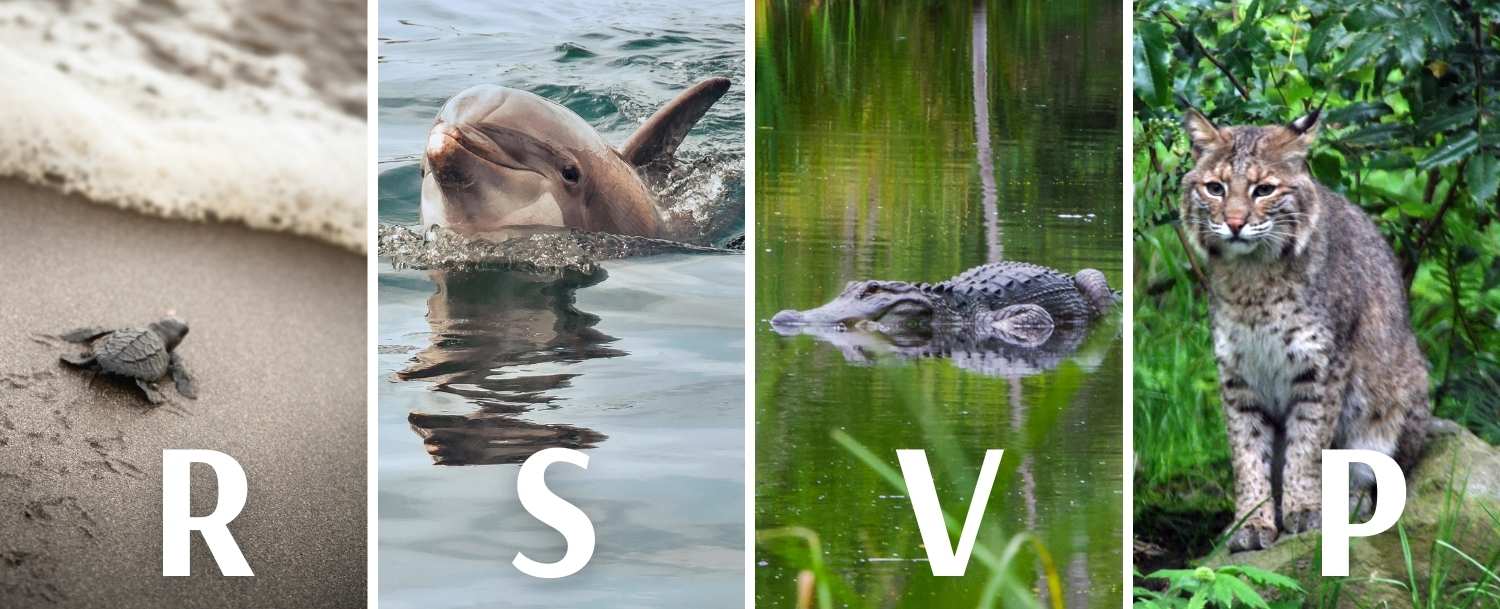Did you know Kiawah Island is a Nature Conservancy?
The wonderland of barrier islands and surrounding lands called the Lowcountry is a landscape of rare beauty and joyful living. Frequent wildlife encounters are one of the most appealing pleasures of life on Kiawah Island - where property owners, visitors and wildlife peacefully coexist. It's up to us ALL to promote positive human behaviors to preserve the island and it's native inhabitants so we may see it last for generations to come.
When the undeveloped barrier island was purchased in 1974, strict development plans were implemented to preserve Kiawah's habitat and wildlife. They have been in place ever since. As a guest to Kiawah Island, we kindly ask that you RSVP during your stay and enjoy all the reasons Kiawah Island is so special!
RSVP Kiawah
Respect, Support, Volunteer, and Protect Kiawah
- Respect Wildlife
- Support Ecological Health
- Volunteer in Environmental Efforts
- Protect Native Habitat
Respect Wildlife:
- Keeping a safe distance from wildlife
- Not interfering with natural behaviors of wildlife (don't feed them)
- Protecting dune wildlife by using boardwalks to access the beach
- Keeping dogs away from dunes and leashed during sea turtle and shorebird nesting seasons
- Understanding that shorebirds view dogs as predators
- Cleaning up after enjoying the beach
- Removing trash, including peanut shells and food scraps
- Filling holes and flattening sandcastles
- Removing toys, chairs and beach equipment
- Keeping lights out on the beach to allow sea turtle hatchlings to venture to the ocean
Support Ecological Health:
- Attending Environmental Education opportunities such as Conservation Matters, Symposium programs, Earth Day, and Naturally Kiawah Pathway Tours
- Following the Kiawah Conservancy on Social Media
- Visiting the Kiawah Conservancy website to find research and information
- Attending a Turtle Patrol nest inventory
- Supporting the Kiawah Conservancy mission with a financial gift
- Making a Legacy Gift to the Kiawah Conservancy
Volunteer in Environmental Efforts:
- Joining the Turtle Patrol
- Participating in beach sweeps
- Becoming a Shorebird Steward or Dolphin Educator
- Participating in a bird count
- Joining the Town's Environmental Committee
- Becoming a trustee or committee member for the Kiawah Conservancy
Protect Native Habitat:
- Staying on boardwalks and leisure trails to protect critical habitat areas
- Earning a Naturally Kiawah Habitat Award
- Becoming a Bobcat Guardian
- Using wildlife-friendly methods for controlling pests
- Planning and maintaining a nesting, resting and feeding friendly landscape
- Using resilient locally native plants in landscaping
- Donating land to the Kiawah Conservancy to preserve in perpetuity
What is the Kiawah Conservancy?
The Kiawah Conservancy is a grassroots organization established in 1997 by property owners to preserve the excellent natural habitat of the island.
The non-profit organization has a mission to measure, manage, improve, and advocate for the ecological health of Kiawah Island and its environs.
Through extensive research and study, the Kiawah Conservancy has completed an island- wide mapping system to identify key areas of wildlife interest.
The inventory has allowed the Conservancy to concentrate its efforts on parcels and natural areas that are significant to continue and sustain optimum habitats.

The Conservancy understands that plant and animal life thrives on a balanced ecosystem. Working with Island entities, the Conservancy ensures acquired properties are appropriately managed and maintained so that native flora and fauna are respected.
Educational efforts are geared toward community awareness with several events held each year to provide information and conservation opportunities to both visitors and property owners.
Become part of the legacy for our environment by partnering with the Kiawah Conservancy. Pam Harrington Exclusives has committed our business to support the efforts of this worthwhile organization since its establishment.
Visit the Kiawah Conservancy online at www.kiawahconservancy.org.
